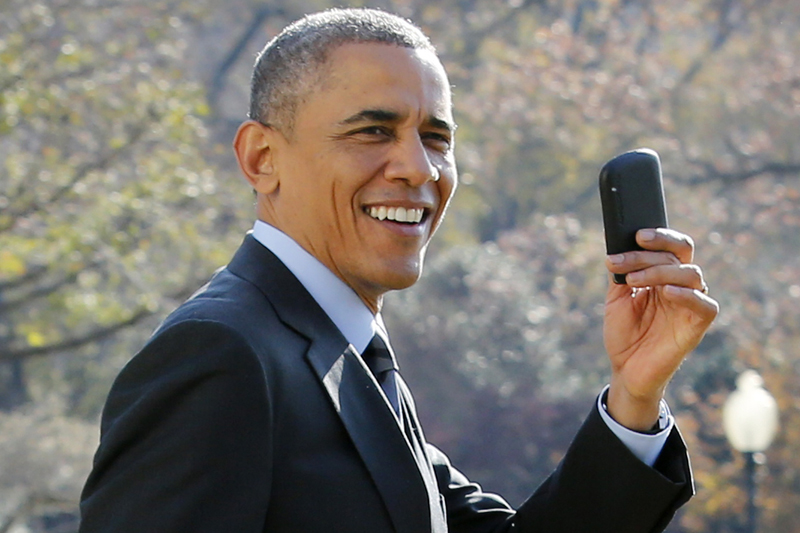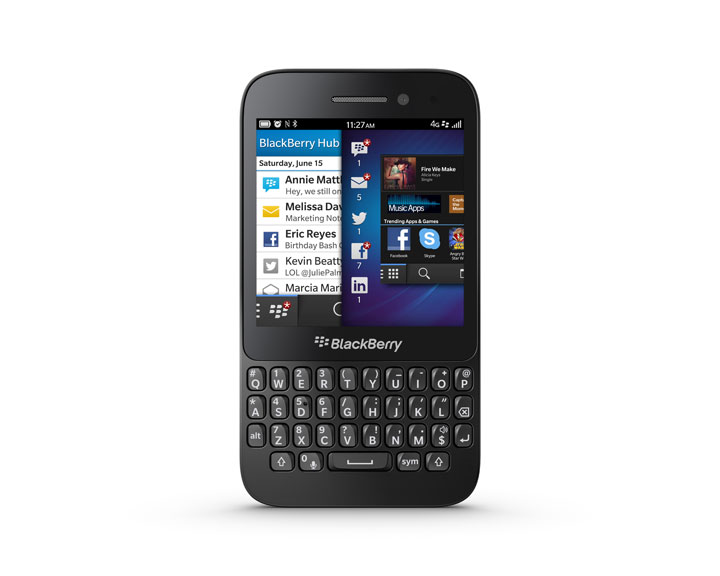There was a time when having a BlackBerry was like being a part of an exclusive club.

Armed with QWERTY keyboards and BlackBerry Messenger PINs, the world’s political, business and social elite swore by the Waterloo, Ont.-based smartphone maker and its reputation for providing secure, durable phones.
READ MORE: BlackBerry to end internal hardware development in strategic shift for tech company
But the Canadian tech darling we once knew is no longer. This week, BlackBerry made the long awaited announcement that it will stop designing and manufacturing smartphones so that it can focus on designing software.
“We believe that the phone market is evolving more and more into the intelligence market,” CEO John Chen said Wednesday.
“It’s really more about the smart of a smartphone, not about the phone of a smartphone.”
This rebranding from smartphone giant to software creator has been slowly evolving over the last few years as the company’s phones lost favour to Apple’s iPhones and Android devices from competitors like Samsung.
READ MORE: BlackBerry launches cybersecurity consulting service
The company even tried releasing Android-powered smartphones – such as the Priv and the DTEK50 – but BlackBerry’s handsets struggled to remain relevant, despite trying to differentiate itself by offering advanced security features.
“I really think they didn’t play up the secure messaging service enough when they had the chance. I’m really afraid that they missed the boat on that.”
GALLERY: A look back at BlackBerry’s most recognizable phones and users
But will the software business be enough to keep the BlackBerry name alive? Experts have mixed opinions.
While Tombak agreed that stepping away from hardware will be good for business, he wonders whether BlackBerry will be able to compete with open source software initiatives such as Google’s Android.
READ MORE: A look at BlackBerry’s results and its battle to reboot
“A lot of open software being created and really having a really big in-house capability in creating software doesn’t really give them a huge competitive edge,” he said.
“Other companies are tapping into what open source programmers are doing and they are interested in working with that big subscriber base. It would be really tough for them to break into that and get an advantage over Apple or Android.”
But some analysts believe BlackBerry’s software revenue shows that the company still has an edge when it comes to security-focused systems.
“This is an entirely sensible decision and probably an overdue one,” IDC technology analyst John Jackson told Reuters. “Software revenue and the margin profile associated with that is where the focus should have been.”
WATCH: BlackBerry’s history

The company reported earning $156 million from software and services in its second quarter, down from $166 million in the first quarter. Its device business accounted for $105 million in revenue.
But just because BlackBerry is hanging up on smartphones, doesn’t mean its reputation as Canada’s tech darling is completely tarnished.
“I would still say they are a success story. And they did wonderful things,” said Tombak. “But it was also a success story where they had some golden opportunities that weren’t seized.”




















Comments